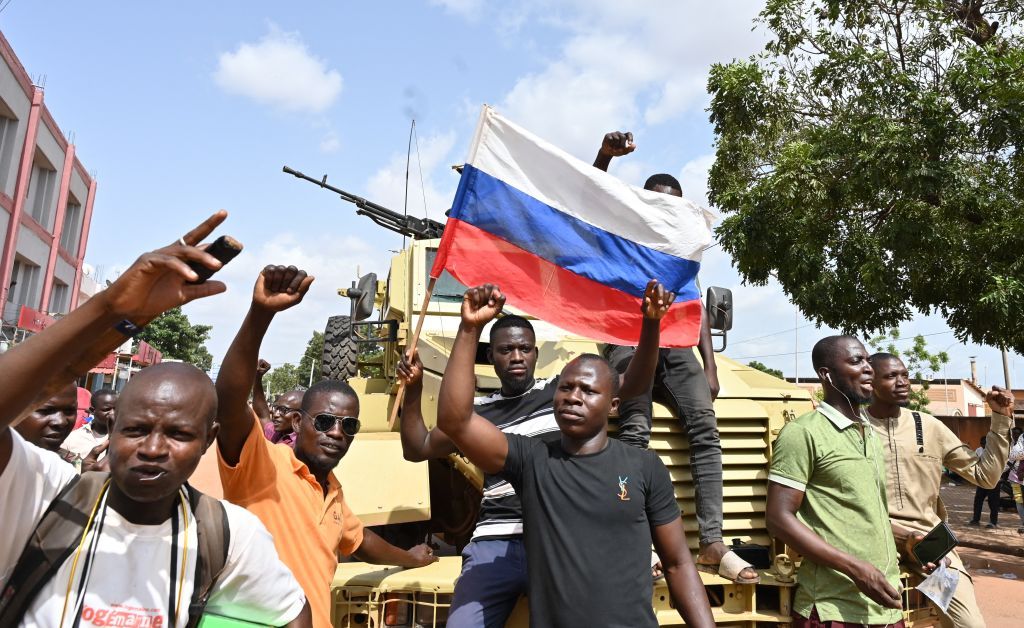Report: Russia has laundered $2.5 billion of African gold since February 2022

The Kremlin has laundered $2.5 billion of African gold since the start of the full-scale invasion of Ukraine, according to a report by an international group of researchers and human rights activists published on Dec. 12.
Russia's illicit activities and ties to authoritarian regimes in Africa have been under the public eye for years. Russian mercenaries on the continent, whose operations help to fill Moscow's coffers, have been repeatedly accused of human rights abuses against local populations.
The Blood Gold Report reveals that Russia-backed mercenaries, including the Wagner Company, support authoritarian regimes and destabilization in Africa as part of resource extraction schemes that bring Russia more than $100 million per month.
The research focused on Wagner's operations in three African countries, each illustrating a different method of resource extraction.
In the Central African Republic, a Wagner front company has been reportedly awarded exclusive rights to the Ndassima mine, the country's largest gold mine, in return for propping up an authoritarian regime.
In Sudan, Wagner has become the dominant buyer of the country's unprocessed gold through a Russia-controlled major refinery, the report said.
The mercenary group is also allegedly involved in gold smuggling. A number of Russian military planes loaded with the precious metal have been identified by Sudanese customs officials.
Finally, in Mali, Wagner is reportedly paid around $10.8 million per month to prop up the country's military junta, which, in turn, relies on a small number of international mining companies for most of its tax revenue.

Canada's Barrick Gold, the country's top taxpayer, paid $206 million to the junta in the first half of 2023 alone, the report said.
Wagner-linked entities in the Central African Republic and Sudan are subject to international sanctions. Therefore, pro-Russian actors rely on complex smuggling routes to extract gold to Russia or the United Arab Emirates, the report said.
The "blood gold" is then supposedly "mixed with other legitimate sources of gold and converted to cash."
In Mali, four major mining companies – Barrick Gold, B2Gold, Resolute Mining, and Allied Gold Corporation – reportedly continue to deliver millions in revenue to the military junta despite growing concerns about human rights violations.
The researchers concluded that this way, the Kremlin's operations in Mali managed to dodge sanctions.
To counter Moscow's gold laundering operations, the Blood Gold Report recommended broader sanctions, stricter supply chain controls, and demanding real responsibility from mining companies.
The researchers also called for designating Wagner Group as a terrorist organization, closing gaps in the existing sanctions, and boosting support to African democracies threatened by Wagner.
Countries like the U.K., Estonia, and Lithuania have classified Wagner as a terrorist group. Washington has not taken the step thus far, recognizing it instead as a "transnational criminal organization."
"Wagner's operations in Africa spread violence and instability across the continent and generate millions of dollars in monthly revenue for the Kremlin, financing both Russia's war on Ukraine and its hybrid warfare against democracies worldwide," said political analyst Jessica Berlin, one of the authors of the report.
"Every government opposed to Russia's crimes must take action to stop the Blood Gold trade and pressure gold mining companies and investors to do the same."
Western countries have imposed a number of sanctions against Wagner and connected entities involved in operations in Africa.
It appears that the group's activities on the continent have not been hindered by its recent upheavals, namely the short-lived rebellion against the Kremlin in June or the demise of its founder, Yevgeny Prigozhin, two months later.












